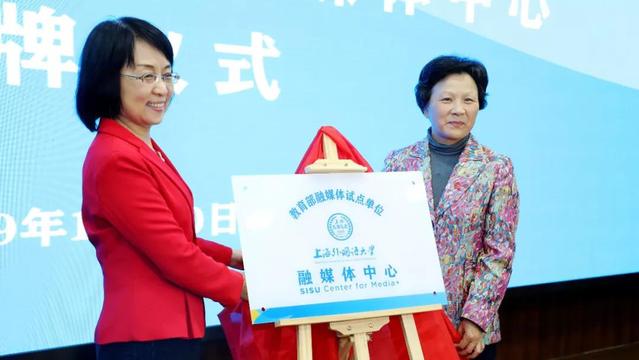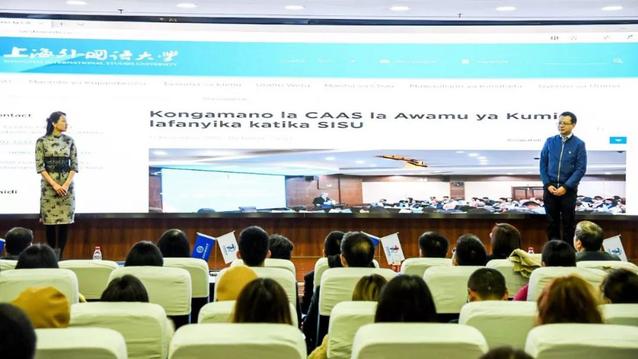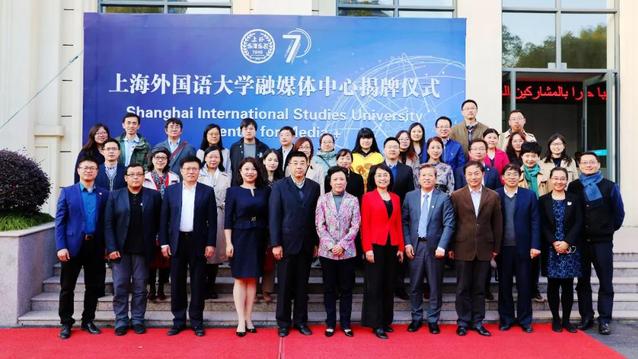
SISU center for Media+ is unveiled as a pilot school for media convergence appointed by China’s Ministry of Education.

SISU Hungarian & Swahili websites launched
SISU’s Hungarian and Swahili websites were launched at the ceremony.

Group Photp
SISU unveils its Center for Media+ on November 20.
Shanghai International Studies University (SISU) unveils its Center for Media+ on Nov. 20, as one of China’s four pilot schools for media convergence appointed by the Ministry of Education.
“‘Media+’ is not equal to the more commonly used term ‘media convergence’ which only means the integration of the different media. “It in fact integrates ‘education’ with media, making teaching, extracurricular activities, network and social practice wonderfully together,” said Wang Jing, deputy secretary of SISU at the ceremony.
SISU’s Hungarian and Swahili websites were launched at the ceremony, increasing the number of multilingual websites from 22 to 24. Since its founding in December 2014, more than 6000 articles of various languages edited by over 100 teachers and students have been published.
SISU opened its Tik Tok account that day, posting a video lasting 1 minute and 14 seconds at 2:51 p.m., which showed the views on SISU campus in both the morning and evening. SISU also signed a cooperation agreement with Shanghai Daily, a Shanghai-based English media, later that day.
SISU has successfully built a series of convergence media platforms represented by its multilingual website these years. Media in- and outside the University have been jointly built and closely interacted with the community. Besides, the University’s Publicity Department and the School of Journalism and Communication have worked together to build a center to integrate media convergence with professional teaching
Zhu Min, deputy director of the Office of CPC Publicity of Shanghai Education and Health Committee, hoped that SISU could give full play to its expertise in multilingual integration and seek to build a unique model of university's convergence media construction by showing SISU style on mobile phones, computers, televisions and other “screens”.
China Daily is willing to work with SISU to innovate and make progress, share experience, and help SISU become an incubator for international media talents, said Zhu Baoxia, secretary-general of China Daily. SISU Center for Media+ will better integrate the university's theoretical achievements with its media+ innovative practice, she said.
Media convergence has become a global trend, said Sun Weixing from the Publicity Department of Shanghai Municipal Committee, which demanded the teaching innovation of communication theory and a new working mode integrating interview, editing, and airing.
Guo Ke, dean of the School of Journalism and Communication at SISU, said that the Center for Media+ will take the language advantage of SISU to promote academic exchanges between universities and provide a unique college perspective for foreign media. The center will build a multilingual media+ news platform with the help of the network and new media training base and the state-level film and television communication laboratory built by the school.
SISU Center for Media+ will converge resources in radio, television, newspapers, websites, we-media and other communication channels. The center will be built as a centralized platform for overall scheduling, convergence media release, public opinion coping, government services and public interaction, exploring to serve as an educational media in accordance with the requirements of China's Ministry of Education.



